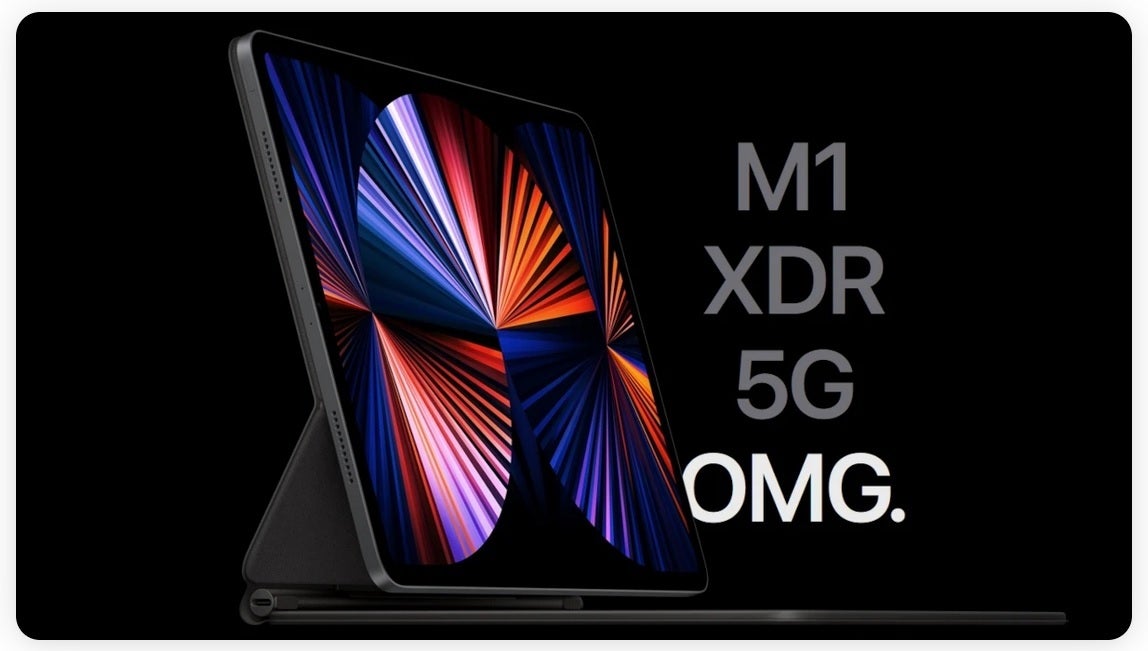Apple seeks "crumple-free" OLED panels for future iPad models

According to The Elec (via AppleInsider) Apple will be using a hybrid OLED panel for the first iPad it produces with an OLED display, something that the report notes will be a few years from now. Currently, Apple uses an LCD backlit screen on its tablets which it calls a "Liquid Retina" display. The one exception is the latest 12.9-inch iPad Pro which uses a mini-LED backlit screen that Apple calls the "Liquid Retina XDR" display.
Fear of flexible "OLED panel crumple" is one of the reasons why Apple would probably use hybrid OLED for the iPad
So what is a hybrid OLED panel? It is a panel that uses a combination of rigid and flexible OLED technologies. For example, a hybrid OLED panel would use rigid glass as a foundation with a plastic layer of flexible thin-film OLED on top. Apple does not want to use flexible OLED panels alone because they tend to crumple. This occurs from the heat used by lasers to remove a glass substrate that starts out as part of a flexible OLED panel during its production.

Apple promotes the mini-LED backlit display on the 12.9-inch iPad Pro
Besides being less likely to crumple, Apple might also like that hybrid OLED panels are thinner than rigid panels and should also be cheaper to produce than flexible panels. Apple currently uses flexible OLED panels for the iPhone. The report notes that if the issues (including the propensity of these panels to crumple) can be resolved, Apple could choose to use flexible OLED panels for the iPad instead of hybrid panels.
LG Display and Samsung Display are said to be working on an ultra-thin glass substrate for hybrid OLED panels. Replacing the current 5nm substrate with one measuring 2mm, the two companies are trying to reduce the thickness of hybrid OLED panels. The latest update reveals that the new technology is still at least one year away from being commercialized, but we are sure that Apple is closely monitoring the developments.
The reason why Apple and other phone manufacturers can get away with using flexible OLED panels for their handsets without crumpling issues is because this flaw isn't as noticeable on smaller screens like the ones used for smartphones. However, the crumpling is noticeable on larger displays like the ones used for the company's iPad tablets. And that is one of the reasons why Apple would probably choose to use a hybrid OLED panel instead of a flexible one for future iPad models.
Mini-LED displays give users some of the same features as OLED panels
Mini-LED backlit screens deliver some of the same features that users receive from OLED displays. The mini-LED displays use smaller LEDs as a backlight. Because of their smaller size, as much as 120 times smaller than the ones employed on traditional LCD screens, these panels have a larger number of LEDs behind the scenes. As a result, instead of the 72 LEDs used on the previous 12.9-inch iPad Pro model, there are 10,000 mini-LEDs used on the current model. They are arranged in four "dimming zones," each with 2,500 mini-LEDs, to provide the super 1,000,000:1 contrast that these screens can offer.
As we just noted, the mini-LED displays offer a high contrast ratio and they are less likely to suffer burn-ins which lead to a permanent image seen on a screen. They also deliver deeper blacks and more true-to-life colors. Last year an Apple executive explained that the mini-LED panel might make the 11-inch iPad Pro too heavy which is why the technology was only used on the larger 12.9-inch variant.
Keep in mind that mini-LED panels are considered the next step in LCD display technology. So even if Apple were to use it for all of its iPad models, the company would probably continue working toward the ultimate goal of offering OLED-screened iPad models. Due to cost though, we'd expect Apple to offer such a feature first on the pricier 12.9-inch iPad Pro just like it is doing with mini-LED.
Follow us on Google News













Things that are NOT allowed:
To help keep our community safe and free from spam, we apply temporary limits to newly created accounts: